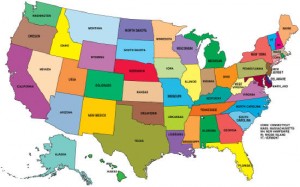 Po prvýkrát priplávali k brehom Ameriky Vikingovia už v 10. a 11. storočí, ale pre Európu bol takzvaný Nový svet objavený až výpravami Krištofa Kolumba roku 1492. V ďalších storočiach saSeverná Amerika stala cieľom kolonizačných snáh Španielska (Mexiko, Florida, územie západne od Mississippi), Holandska (časť východného pobrežia), Francúzska (Kanada, povodieMississippi). Pre históriu budúcich Spojených štátov mala najväčší význam anglická kolonizácia atlantického pobrežia. Od roku 1664 sa Británia postupne zmocnila holandských a časti francúzskych osád v Severnej Amerike a do roku 1773 vytvorila na pobreží 13 kolónií (Massachusetts, New Jersey, New York, Rhode Island, Connecticut, New Hampshire, Pensylvánia,Delaware, Virgínia, Maryland, Severná Karolína, Južná Karolína, Georgia), základ budúcich USA.
Po prvýkrát priplávali k brehom Ameriky Vikingovia už v 10. a 11. storočí, ale pre Európu bol takzvaný Nový svet objavený až výpravami Krištofa Kolumba roku 1492. V ďalších storočiach saSeverná Amerika stala cieľom kolonizačných snáh Španielska (Mexiko, Florida, územie západne od Mississippi), Holandska (časť východného pobrežia), Francúzska (Kanada, povodieMississippi). Pre históriu budúcich Spojených štátov mala najväčší význam anglická kolonizácia atlantického pobrežia. Od roku 1664 sa Británia postupne zmocnila holandských a časti francúzskych osád v Severnej Amerike a do roku 1773 vytvorila na pobreží 13 kolónií (Massachusetts, New Jersey, New York, Rhode Island, Connecticut, New Hampshire, Pensylvánia,Delaware, Virgínia, Maryland, Severná Karolína, Južná Karolína, Georgia), základ budúcich USA.
Zásahy materskej krajiny do pomerov v kolóniách vyvolali protibritskú opozíciu, ktorá vyvrcholila roku 1775 vypuknutím otvorenej vojny medzi kolóniami a Veľkou Britániou. Roku 1776 vydal druhý Kontinentálny kongres Deklaráciu nezávislosti, ktorá vyhlasovala vznik Spojených štátov amerických. Podľa Konfederačných článkov z roku 1781 si každý zo štátov únie zachoval samostatnú vnútornú a ekonomickú politiku. Vojna za nezávislosť sa skončila v roku 1783 britským uznaním nového štátu. Roku 1787 bol konfederatívny charakter USA nahradený systémomfederatívnym. Nová ústava bola prijatá po necelých štyroch mesiacoch rokovaní 17. septembra 1787.
Od konca 18. storočia sa potom začala územná expanzia USA smerom na západ a na juh. Postupne boli do únie prijaté ďalšie štáty: Vermont (1791), Kentucky (1792), Tennessee(1796), Ohio (1803). V roku 1803 bola od Francúzska odkúpená Louisiana (jej časť bola prijatá do únie ako rovnomenný štát roku 1812). Snaha pripojiť aj Kanadu sa skončila neúspešne vojnou s Veľkou Britániou v rokoch 1812-1814. Z jednotlivých teritórií boli postupne vytvárané štáty:Indiana (1816), Mississippi (1817), Illinois (1818), Alabama (1819), Maine (1820), Missouri (1821). V roku 1819 získalo USA od Španielska Floridu(štát od 1845) a v roku 1845 bol anektovaný Texas a po americko-mexickej vojne z rokov 1846-1848 Kalifornia (štát od 1850) a ďalšie územia. Do začiatku 60. rokov boli do únie prijaté ďalšie štáty: Arkansas (1836), Michigan (1837), Iowa (1846), Wisconsin (1848), Minnesota (1858), Oregon(1859).
Rozpory medzi otrokárskym Juhom a slobodným Severom viedli v rokoch 1860-1861 k secesii (odtrhnutiu) 11 južných štátov (Južná Karolína,Mississippi, Florida, Alabama, Georgia, Louisiana, Texas, Virgínia, Arkansas, Severná Karolína, Tennessee), ktoré vyhlásili Konfederované štáty americké, a následne občiansku vojnu. Vojna medzi Juhom (Konfederáciou) a Severom (Úniou) trvala do roku 1865 a skončila víťazstvom Severu. Mohutný hospodársky rozvoj po skončení vojny bol sprevádzaný ďalšou expanziou na západ.
Do 1. svetovej vojny tu vzniklo 15 ďalších štátov: Kansas (1861), Západná Virgínia (1863), Nevada (1864), Nebraska (1867), Colorado (1876), Severná Dakota, Južná Dakota, Montana, Washington(1889), Idaho, Wyoming (1890), Utah (1896), Oklahoma (1907), Arizona, Nové Mexiko (1912). V roku 1867 odkúpila americká vláda od RuskaAljašku a od 80. rokov 19. storočia potom USA expandovali aj mimo vlastnej americkej pevniny do karibskej oblasti a do Tichomoria (protektorát nad Portorikom a Kubou, ostrov Guam,Filipíny, anexia Havajských ostrovov roku 1898, rozdelenie ostrova Samoa s Nemeckom roku 1899, Prieplavové pásmo v Paname atď.).
Americká účasť v obidvoch svetových vojnách na strane spojencov významne prispela k ich víťazstvu. Po 2. svetovej vojne bolo USA zverené do správy správcovské územie OSN v Tichom oceáne a väčšina z novo konštituovaných štátov sa neskôr stala voľne pridruženými štátmi USA (Marshallove ostrovy, Severné Mariány, Mikronézia atď.). Roku 1959 boli vytvorené dva doteraz posledné štáty únie - Aljaška a Havaj. Za 2. svetovej vojny, ktorá priamo nezasiahla územie USA (okrem Havajských ostrovov), sa priemyslová výroba zdvojnásobila a USA sa stali hospodársky najsilnejším štátom sveta a popri ZSSR rozhodujúcou vojenskou veľmocou. Rolu vedúcej svetovej veľmoci ešte zvýraznil pád komunistických režimov vo východnej Európe po roku 1989 a následný rozpad ZSSR.
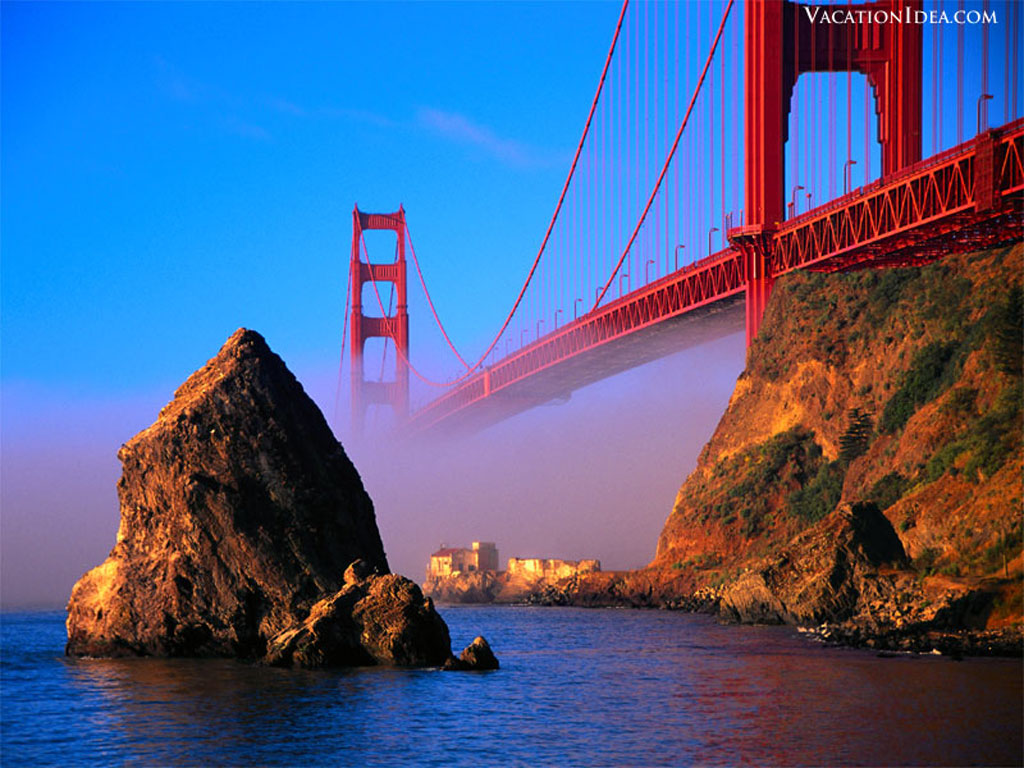 Travellers to the United States who are returning residents of the country do not have to pay duty on articles purchased abroad to the value of $800 provided their stay was longer than 48 hours and their duty-free allowance was not used in the 30 -day period prior. For passengers arriving from Samoa, Guam and the U.S. Virgin Islands, a duty-free allowance of $1,200 is allowed. The following items are included in this: 1,000 cigarettes and 100 cigars.
Travellers to the United States who are returning residents of the country do not have to pay duty on articles purchased abroad to the value of $800 provided their stay was longer than 48 hours and their duty-free allowance was not used in the 30 -day period prior. For passengers arriving from Samoa, Guam and the U.S. Virgin Islands, a duty-free allowance of $1,200 is allowed. The following items are included in this: 1,000 cigarettes and 100 cigars.
 Health: There are no specific health risks associated with travel within the USA. Medical facilities are excellent, but expensive. Only emergencies are treated without prior payment and treatment can be refused without evidence of insurance or proof of funds. Good medical insurance is essential.
Health: There are no specific health risks associated with travel within the USA. Medical facilities are excellent, but expensive. Only emergencies are treated without prior payment and treatment can be refused without evidence of insurance or proof of funds. Good medical insurance is essential.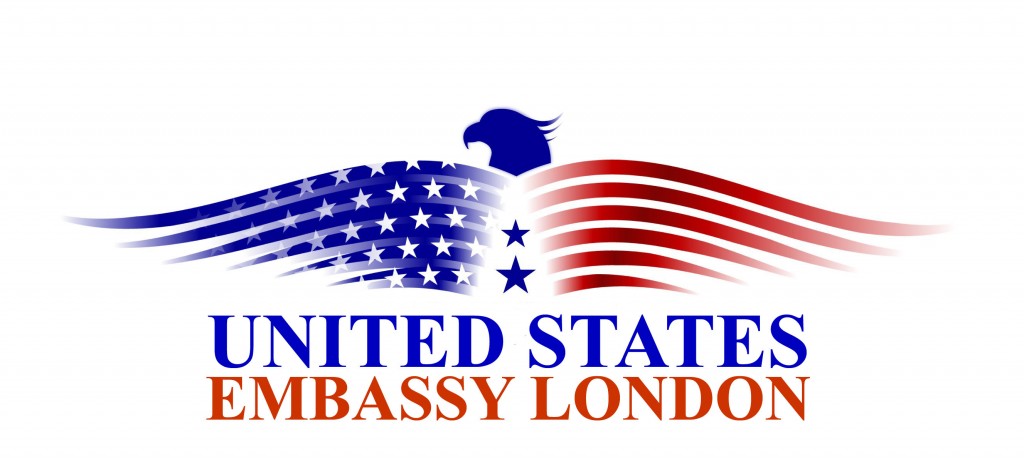
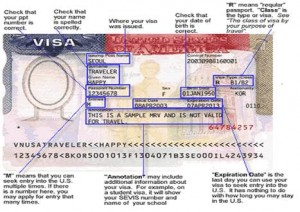 Visitors entering the country under the Visa Waiver Programme (VWP) must have a machine-readable passport (MRP) that has a bar code on the photo page. From 26 October 2006 eligible travellers under the VWP must include biometrics in their machine-readable passports if they wish to enter the country without a visa, containing unique personal data such as fingerprints or iris details. All new passports issued on or after 26 October 2005 must contain a digital photo image in order to travel visa-free.
Visitors entering the country under the Visa Waiver Programme (VWP) must have a machine-readable passport (MRP) that has a bar code on the photo page. From 26 October 2006 eligible travellers under the VWP must include biometrics in their machine-readable passports if they wish to enter the country without a visa, containing unique personal data such as fingerprints or iris details. All new passports issued on or after 26 October 2005 must contain a digital photo image in order to travel visa-free.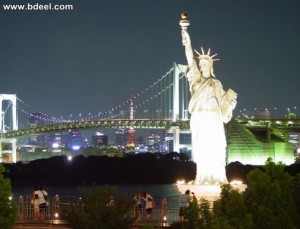 Time: The USA is divided into six time zones. Eastern Time is GMT -5, Pacific Time is GMT -8, Central Time is GMT -6, Mountain Time is GMT -7, Alaska is GMT -9, and Hawaii is GMT -10. Other than Arizona and Hawaii, all states observe daylight saving time in summer between March and November when clocks go back one hour.
Time: The USA is divided into six time zones. Eastern Time is GMT -5, Pacific Time is GMT -8, Central Time is GMT -6, Mountain Time is GMT -7, Alaska is GMT -9, and Hawaii is GMT -10. Other than Arizona and Hawaii, all states observe daylight saving time in summer between March and November when clocks go back one hour. America was stumbled upon by Columbus in 1492 and for more than 500 years people have travelled here seeking a better life in the ‘land of opportunity’. The land was fought over by colonial powers for centuries and finally won its independence from Britain in 1783. Despite the near annihilation of the Native American population, one of the bloodiest civil wars the world had seen, and ingrained racism (Native Americans were not granted citizenship until 1924 and racial segregation was the norm until as late as the 1950s), the American people have succeeded in forging one of the worlds most united, democratic and tolerant nations, a fascinating melting-pot of cultures, and the undisputed military and economic heavyweight of the world.
America was stumbled upon by Columbus in 1492 and for more than 500 years people have travelled here seeking a better life in the ‘land of opportunity’. The land was fought over by colonial powers for centuries and finally won its independence from Britain in 1783. Despite the near annihilation of the Native American population, one of the bloodiest civil wars the world had seen, and ingrained racism (Native Americans were not granted citizenship until 1924 and racial segregation was the norm until as late as the 1950s), the American people have succeeded in forging one of the worlds most united, democratic and tolerant nations, a fascinating melting-pot of cultures, and the undisputed military and economic heavyweight of the world. Po prvýkrát priplávali k brehom Ameriky Vikingovia už v 10. a 11. storočí, ale pre Európu bol takzvaný Nový svet objavený až výpravami Krištofa Kolumba roku 1492. V ďalších storočiach saSeverná Amerika stala cieľom kolonizačných snáh Španielska (Mexiko, Florida, územie západne od Mississippi), Holandska (časť východného pobrežia), Francúzska (Kanada, povodieMississippi). Pre históriu budúcich Spojených štátov mala najväčší význam anglická kolonizácia atlantického pobrežia. Od roku 1664 sa Británia postupne zmocnila holandských a časti francúzskych osád v Severnej Amerike a do roku 1773 vytvorila na pobreží 13 kolónií (Massachusetts, New Jersey, New York, Rhode Island, Connecticut, New Hampshire, Pensylvánia,Delaware, Virgínia, Maryland, Severná Karolína, Južná Karolína, Georgia), základ budúcich USA.
Po prvýkrát priplávali k brehom Ameriky Vikingovia už v 10. a 11. storočí, ale pre Európu bol takzvaný Nový svet objavený až výpravami Krištofa Kolumba roku 1492. V ďalších storočiach saSeverná Amerika stala cieľom kolonizačných snáh Španielska (Mexiko, Florida, územie západne od Mississippi), Holandska (časť východného pobrežia), Francúzska (Kanada, povodieMississippi). Pre históriu budúcich Spojených štátov mala najväčší význam anglická kolonizácia atlantického pobrežia. Od roku 1664 sa Británia postupne zmocnila holandských a časti francúzskych osád v Severnej Amerike a do roku 1773 vytvorila na pobreží 13 kolónií (Massachusetts, New Jersey, New York, Rhode Island, Connecticut, New Hampshire, Pensylvánia,Delaware, Virgínia, Maryland, Severná Karolína, Južná Karolína, Georgia), základ budúcich USA.